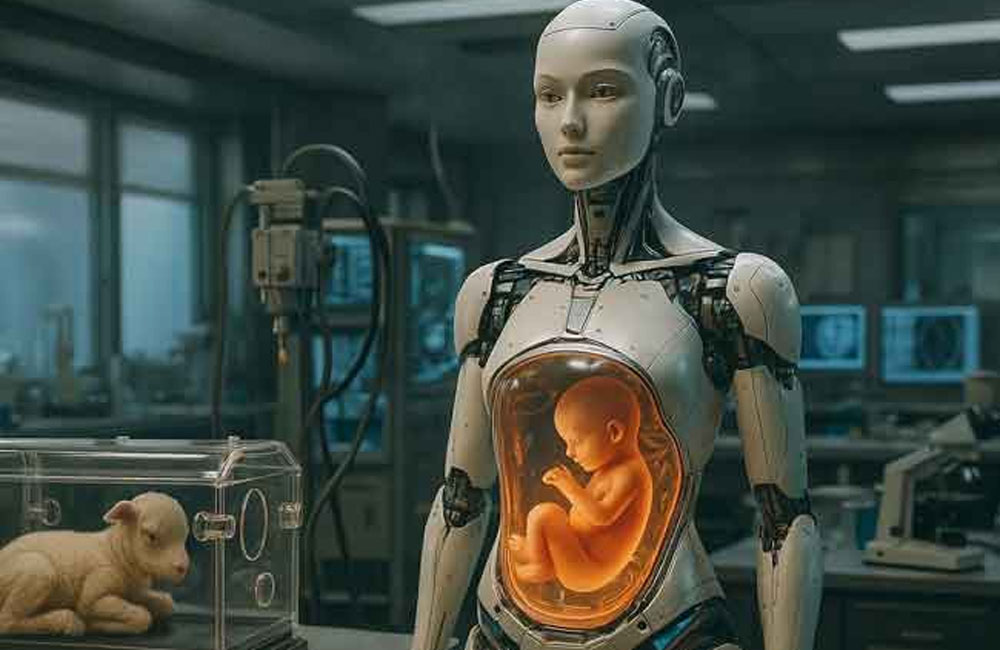Scientists in China are developing the world’s first ‘pregnancy robot’ capable of carrying a baby to term and giving birth.
The humanoid will be equipped with an artificial womb that receives nutrients through a hose, experts said.
A prototype is expected to be released next year, with a selling price of around 100,000 yuan (£10,000).
Dr Zhang Qifeng, who founded the company Kaiwa Technology, is developing the machine.
The device he envisions is not simply an incubator but a humanoid that can replicate the entire process from conception to delivery, Asian media outlets report.
He said the artificial womb technology is already in a ‘mature stage’ and now needs to be implanted in the robot’s abdomen, ‘so that a real person and the robot can interact to achieve pregnancy’.
With regards to ethical and legal issues, he said: ‘We have held discussion forums with authorities in Guangdong Province and submitted related proposals while discussing policy and legislation.’
Experts have not yet provided any specifics on how the egg and sperm are fertilised and implanted in the artificial womb.
Dr Zhang’s revelations were made during an interview shared on Duoyin, the Chinese version of TikTok.
Previously, scientists have successfully kept premature lambs alive for weeks using an artificial womb that looks like a plastic bag.
The ‘biobag’ provided everything the foetus needed to continue growing and maturing, including a nutrient–rich blood supply and a protective sac of amniotic fluid.
After 28 days of being in the bag, the lambs – which otherwise would likely have died – had put on weight and grown wool.
While the biobag acts like an incubator, allowing premature individuals to grow in an environment similar to the womb, scientists hope the pregnancy robot will be able to support the foetus from conception to delivery.
The development is reminiscent of the 2023 film The Pod Generation, where a tech giant offers couples the option of using detachable artificial wombs or ‘pods’ to share pregnancy.
If it comes to fruition, the humanoid pregnancy could be seen as a tool to help tackle rising rates of infertility in China.
Reports suggest the rates of infertility in China rose from 11.9 per cent in 2007 to 18 per cent in 2020.
In response, local governments in China are including artificial insemination and in vitro fertilization treatments in medical insurance coverage to support childbirth for infertile couples. (Daily Mail)

Leave your comments
Login to post a comment
Post comment as a guest